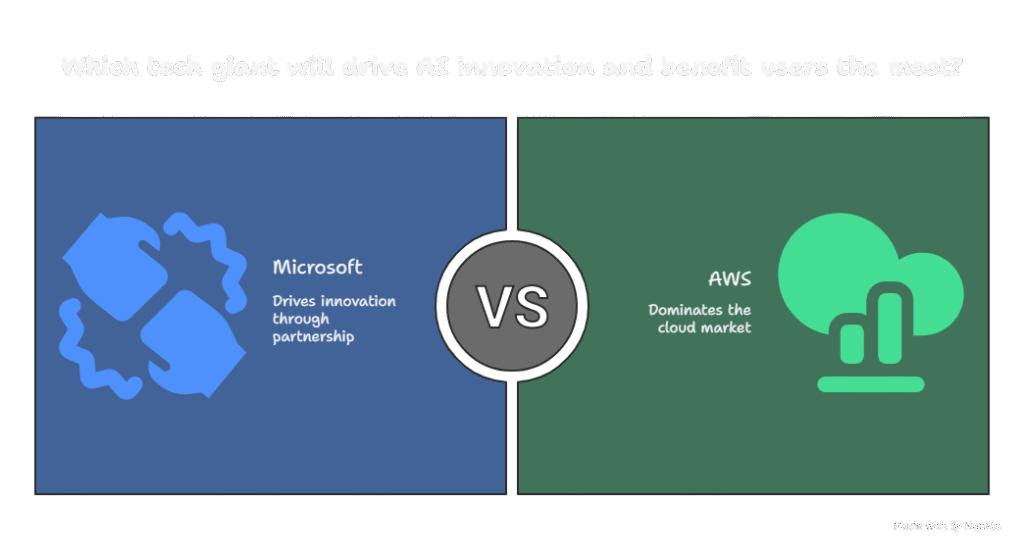In a move that’s sending ripples through the tech industry, OpenAI has announced a major partnership with Google Cloud, making it a key infrastructure provider for ChatGPT and its API in the U.S., Japan, the Netherlands, Norway, and the UK. This collaboration marks a significant shift in the cloud computing landscape and has far-reaching implications for the future of artificial intelligence, cloud competition, and the broader tech ecosystem.
Why This Partnership Matters

OpenAI’s ChatGPT has become a household name, powering everything from business productivity tools to creative writing assistants. Until now, OpenAI relied almost exclusively on Microsoft’s Azure for its cloud infrastructure needs. The addition of Google Cloud as a partner signals a new era of multi-cloud strategies for AI companies and highlights the growing importance of cloud flexibility, reliability, and global reach.
The Stakes: Cloud Wars and AI Growth
The cloud infrastructure market is dominated by a few giants: Amazon Web Services (AWS), Microsoft Azure, and Google Cloud Platform (GCP). Each has been vying for dominance, especially as AI workloads become more demanding and lucrative. By bringing Google Cloud into the fold, OpenAI is not only diversifying its risk but also gaining access to Google’s advanced AI-optimized hardware, global data centers, and robust security features.
For Google, this is a major win. The company has long been a leader in AI research and infrastructure, but has trailed AWS and Azure in market share. Partnering with OpenAI—one of the most high-profile AI companies in the world—gives Google Cloud a significant boost in credibility and visibility.
What Does This Mean for ChatGPT Users?
For end users and businesses leveraging ChatGPT, this partnership promises several benefits:
- Improved Reliability: With infrastructure spread across multiple cloud providers, ChatGPT is less likely to experience outages or slowdowns.
- Faster Global Access: Google’s extensive network of data centers means users in more regions will experience lower latency and faster response times.
- Enhanced Security: Google Cloud’s security protocols and compliance certifications add another layer of protection for sensitive data processed by ChatGPT.
- Innovation Acceleration: Google’s AI-optimized hardware (like TPUs) and research expertise could help OpenAI push the boundaries of what ChatGPT can do.
The Bigger Picture: Multi-Cloud Is the New Normal
OpenAI’s move reflects a broader trend in the tech industry: the shift toward multi-cloud strategies. Relying on a single cloud provider can create bottlenecks, increase risk, and limit innovation. By partnering with both Microsoft and Google, OpenAI can negotiate better terms, access unique features from each provider, and ensure business continuity.
This trend is likely to accelerate as more companies realize the benefits of spreading their workloads across multiple clouds. It also puts pressure on cloud providers to differentiate themselves not just on price, but on performance, security, and AI capabilities.
What’s Next for OpenAI and Google Cloud?

The partnership is already rolling out in several key markets, and both companies have hinted at deeper collaboration in the future. For OpenAI, this could mean leveraging Google’s AI research, tools, and hardware to further enhance ChatGPT and other models. For Google, it’s an opportunity to showcase its cloud platform to a global audience and attract more AI startups and enterprises.
Meanwhile, Microsoft remains a crucial partner for OpenAI, and AWS continues to dominate the cloud market. The competition among these giants will likely lead to faster innovation, better pricing, and more powerful AI tools for everyone.
Stay tuned for more updates on the evolving world of AI and cloud computing.
If you found this article helpful, follow us for more tech news, analysis, and industry insights!
